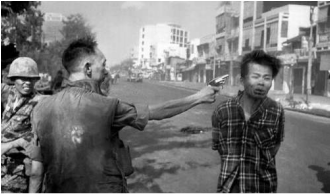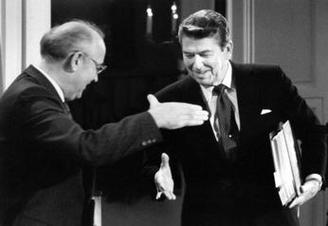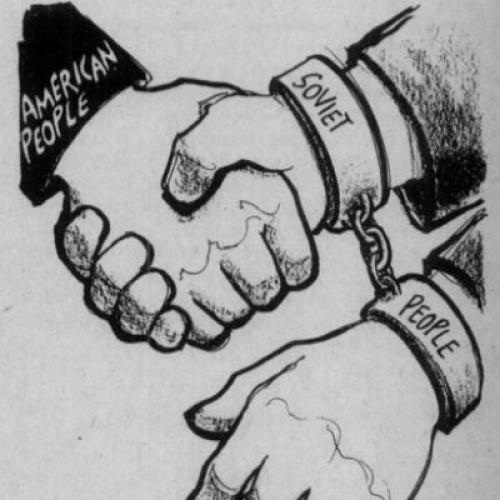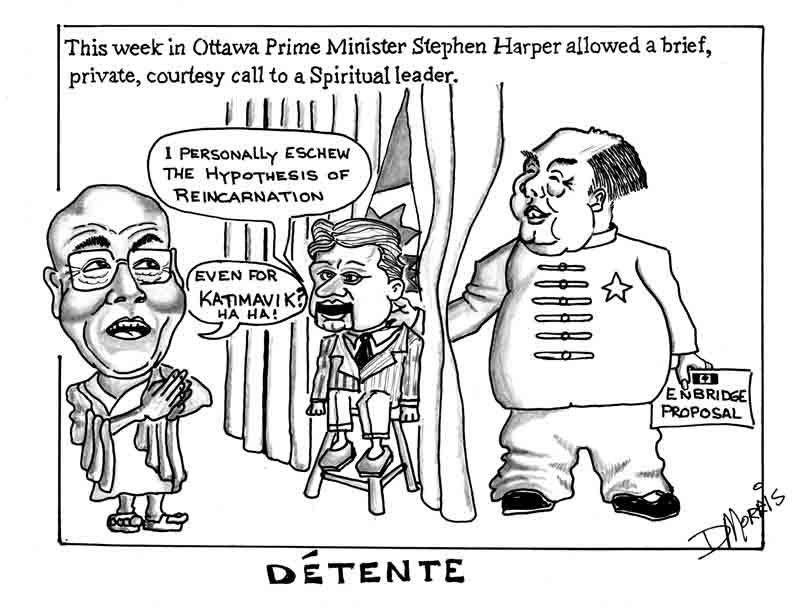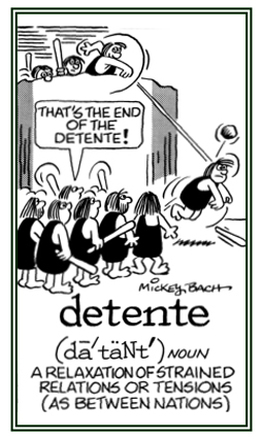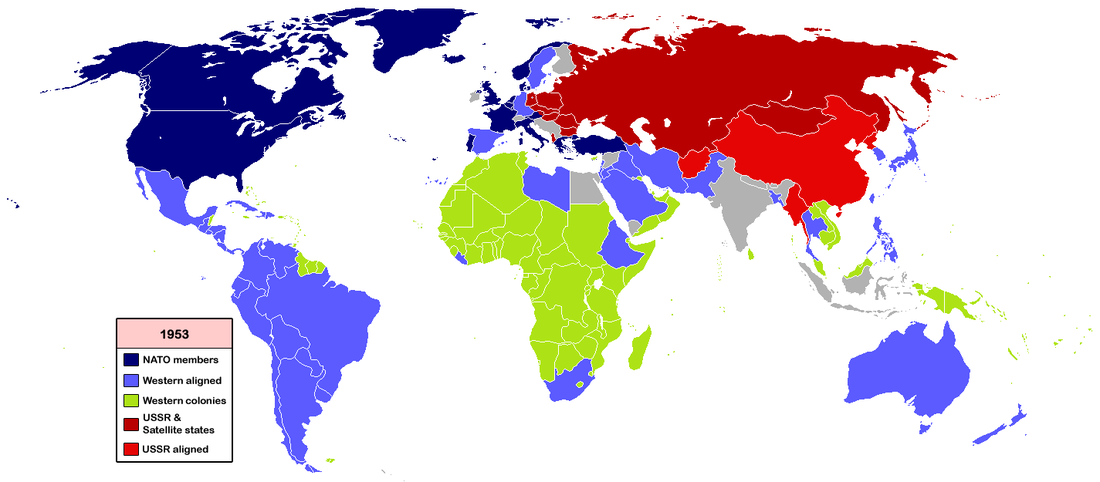Paper 2 Mark Scheme
|
Social, Political, Economic, Religious/ideas, Military (post- revisionist)
Supporting Argument- Stalin, Totalitarian- opposed by democracy Was USSR to blame?
Was US to blame?
Were both sides to blame?
|
'Mutual fears and the search for security were the reasons for the breakdown of East-West relations between 1945-1949.' With specific reference to developments in this period, to what extent do you agree with this statement?' (15 marks)
Thesis: Mutual fears as well as the search for security were a clear reason for the breakdown between the East and the West. However, there are other reasons such as, social and political ideologies as well as economical intentions by both sides. But mutual fears and the search for security were the main reasons for the break down of relations after World War Two.
1st Section (2-3 paragraphs) - How I agree with the question - talks about mutual fears and search for security but also criticize - why it is not the main reason. Can I supplement these points with historiography? Statement 1: Communism was set out to overthrow capitalism, 'salami tactics' used to instill communism in Eastern Europe. Berlin, Poland, Eastern European "free elections" (Political fears) 'Marxism-Leninism gave the Russian leaders a view of the world in which the existence of any non-Communist state was by definition a threat to the Soviet Union'- Arthur M Schlesinger Jr. (Orthodox view)- American historian Statement 2: The USSR began to target Eastern European countries, trying to convert them into communist countries by using 'salami tactics', however, what the US and allies failed to acknowledge was the USSR may have tried to create a safer and more secure Soviet Union. In the span of half a century Russia had been invaded four times (Russo-Japanese War, Civil War-white army, WW1, WW2) and it needed to recover economically and socially in order to avoid political unrest. - Territorial for the USSR and capitalist countries, 'Iron Curtain' (1946) (Search for security) 'The two powers did not initially come into conflict because one was Communist and the other Capitalist.'- Walter LaFeber (Post-Revisionist historian)- American historian Statement 3: Stalin was known to be a brutal leader who was also paranoid of others, leading a totalitarian state he maintained control of all decisions. '... As long as Stalin was running the Soviet Union, a Cold war was unavoidable'- We Now Know, Rethinking the Cold War History, 1997, John Lewis Gaddis (Post- Revisionist and 'New' Historian view)- America historian Stalin's own specific modus operandi ('method of operation', Latin) of paranoia and suspicion- Vojtech Mastny ('New' historian)- American historian 2nd Section (4-5 paragraphs) - Argument and Supporting Argument Give examples and reasons- what historiographical school of thought backs me up? Statement 1: The Truman Doctrine and Marshall Plan was also used the US to scare the USSR, in response the USSR reacted by forming Cominform and Council for Mutual Economic Assistance. (Economic fears) ‘The Cold War grew out of a complicated interaction of external and internal developments inside both the United States and the Soviet Union. Internal influences in the Soviet Union − the search for security, the role of ideology, massive post-war reconstruction needs, the personality of Stalin − together with those in the United States − the need for self-determination, fear of Communism, the illusion of omnipotence fostered by American economic strength and the atomic bomb − made the resulting confrontation a hostile one.'- The United States and the Origins of the Cold War 1941−47 (Columbia University Press, 1972), John Lewis Gaddis (Post- Revisionist and 'New' Historian view)- America historian Statement 2: Both the US and the USSR feared one another after the development of atomic weapons, the US had successfully dropped two on Japan in August 1945 and by August 1949 the USSR had successfully tested its first atomic bomb. This meant both superpowers had nuclear weapons and began nuclear proliferation (stocking), which could cause mutually, assured destruction. (Mutual fear and search for security) Both superpowers overestimated the strength and threat of the other- much fo the growing tension resulted because of 'action and reaction'- Walter LaFeber (Post-Revisionist historian)- American historian Statement 3: Some historians believe the breakdown of the alliance after the war was caused by the USSR who had disregarded previous agreements made during Yalta in 1945 and having an aggressive approach in Germany, starting the Berlin Blockade in 1946. Soviet aggression responsible- Herbert Feis (Orthodox view)- American historian and economist Statement 4: On the other hand, some historians argue that the US was to blame for the breakdown of the alliance as they too were aggressive with their general views on Communism as a whole and the threat of nuclear attacks. Dollar Diplomacy, Americans had always been an empire-building people, further its aims in other countries by using its economic power- providing loans to other countries- William Appleman Williams (Revisionist view)- America New-Left (political movement) historian 'the illusion of omnipotence fostered by American economic strength and the atomic bomb − made the resulting confrontation a hostile one.'- The United States and the Origins of the Cold War 1941−47 (Columbia University Press, 1972), John Lewis Gaddis (Post- Revisionist and 'New' Historian view)- America historian Conclusion - Sum up main arguments, why my thesis is best, perhaps even criticize the question itself? (Showing off my analysis and evaluation skills) Statement: Overall, there were many reasons for the breakdown between the East and West, but the main two were mutual fears and a search for security by both countries. Both countries wanted to be a superpower and have dominating control over the economy, ideology and military. However, the USSR needed to recover from war and US politics convinced the public of a communist threat, the two countries clashed creating a mutual fear between the two. This resulted in the need for both to feel secure again, leading them to challenge each other economically and militarily. However, both countries having different ideals responded and acted differently furthering the different and divide between. Since neither country would back down it caused a complete breakdown of the alliance between the two countries. |
|
'Despite the claims of those who promoted détente, its achievements were limited.' To what extent do you agree with this statement?
Introduction
Détente was the 'relaxing of tensions' during the Cold War, throughout the 1960-1980s the United State, Soviet Union, China and European nations all had reasons to pursue policies designed to create a more stable relation and reduce the threats of a nuclear war. Some historians argue that détente was a success as it reduced tensions, leading to arms reduction. But it is important to acknowledge that détente was no aiming for world peace but to improve and relax relations between nations. Others would argue that détente was a failure because it allowed the USSR to strengthen its economy and nuclear parity, arguably a 'Soviet trick'. The failures of détente meant that its achievements were limited, resulting in the continuation of the Cold War. Agree: US and USSR intentions, different and oppose one another The US and USSR both had nuclear weapons and this resulted in the threat of a nuclear war, the two countries clearly had different ideologies and beliefs which made it almost impossible for them to agree with one another.
Disagree: Death of Stalin, Nikita Khrushchev denounced Stalin However, after the death of Stalin the USSR had many changes in leadership, Khrushchev, as well as reforms economically, socially and politically, this adjustment brought them close to the Western powers.
Agree: Cold War continued after détente On the other hand, these changes were not enough to end the Cold War and it continued after détente, resulting in further conflicts such as, fighting in the Middle East and the space race.
Disagree: Agreements made between nations But, previous to the end of détente many agreements like the Limited Nuclear Test Ban Treaty and Helsinki Final Act were signed by the US, USSR, PRC and other nations that improved relations and prevented conflicts between countries.
Conclusion To conclude, détente was only a temporary solution between the nations as proven by the events that resulted in the end of détente, such as, the space race and the invasion of Afghanistan by the USSR. However, there were success that came out of détente, such as, the improved relations and many agreements between nations, but these were limited. Overall, the statement is correct to an extent as détente the achievements were limited, but this is not directly a result of claims made by those who were for détente. |
